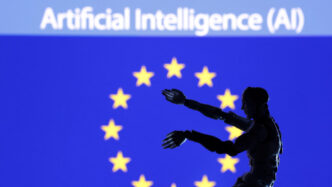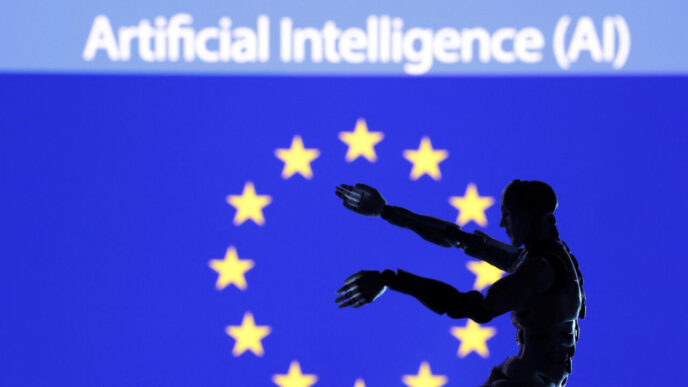The EU’s AI Act rolled out new rules yesterday forcing AI makers to be transparent and safe. Companies must clearly say when an AI voice is involved—no fooling users with a realistic “human” accent.
Dublin’s digital agency All human is already feeling the heat. They’re building an AI energy price tool with an Irish-accented chatbot. CEO John Mitchell says firms must now declare what’s real and what’s AI.
“With the sophistication of AI, things like artificial voices can be so nuanced that they can convince you it’s human,” John Mitchell said.
“As a consequence of the AI Act, organisations, brands and providers of services, particularly in a digital context, have to declare what is real and what is not.”
The Act, introduced last year, bans high-risk AI that endangers safety or rights. It also demands full transparency and proper policing by governments. Ireland has to set up authorities and penalties to enforce these rules.
Maureen Daly from Pinsent Masons warns businesses to get ready ASAP, including startups.
“Obviously it relates to the big players like Google and Meta, but also to start-ups and SMEs that have AI systems, they are going to have to comply as well,” Daly said.
“The European Commission has said because they don’t have the relevant powers they won’t start fining people until 2 August 2026 but that doesn’t mean you can just sit on your laurels until then because all of this is going to take time and resources.”
“The fines are quite large, 3% of annual turnover or €15 million if you don’t comply.”
Critics say Ireland’s government is moving too slow. Dr Kris Shrishak of the Irish Council for Civil Liberties argues they should have prepared long ago.
“They should have started this process much, much earlier,” Dr Shrishak said.
“There needs to be an urgency from the Government not only to set up the required governance mechanism for the regulators, but also to provide the resources so that regulators can do their jobs.”
“I think the State needs to accelerate what it is doing.”
Ireland insists it’s on track, with ongoing workshops and dialogue supporting enforcement.
Meanwhile, the US is doing the opposite. Donald Trump vows to slash AI red tape to “win the AI race.” The big question: will Europe’s regulation slow its innovation edge?
Digital Business Ireland’s Caroline Dunlea says balance is key.
“DBI believes that a balanced attitude to enforcing the Act must be taken to avoid overregulation of the AI space,” she said.
John Mitchell agrees the EU struck the right note.
“I think there needs to be guardrails,” Mitchell said.
“I think the EU has got the balance right with a combination of being progressive but also being protective.”
“In the long term, that is the way to go with AI because it is very unregulated today.”
A radio report on the new AI rules will air on RTÉ Radio 1’s This Week at 1pm.












